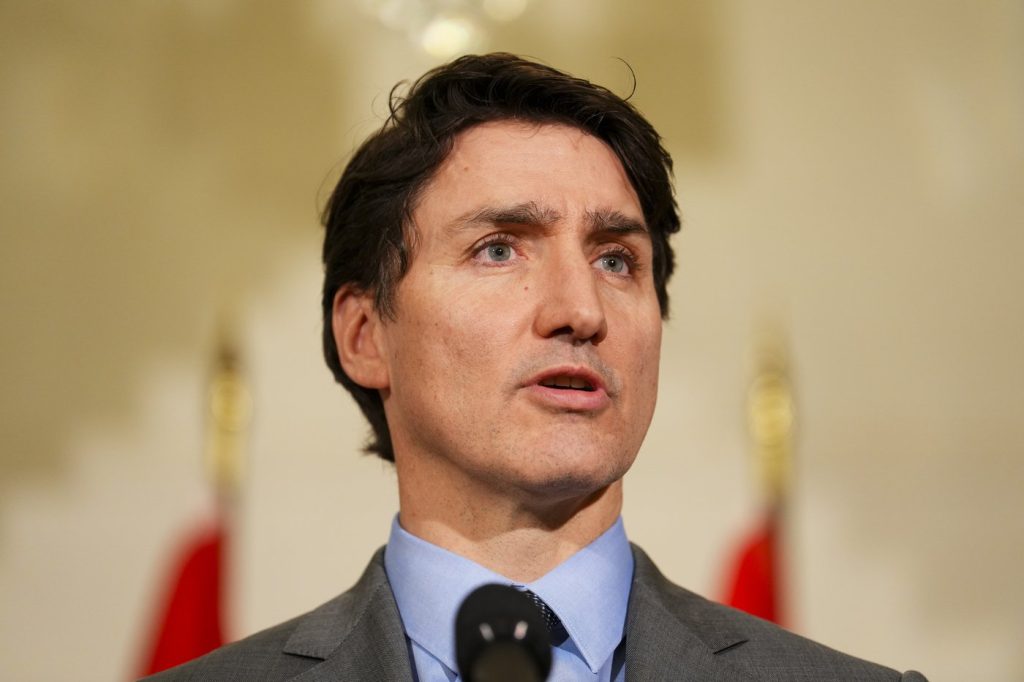Trudeau Set to Meet King Charles Before Departure
Prime Minister Justin Trudeau was scheduled to meet King Charles in London before his return trip to Ottawa. This visit followed Trudeau's participation in a weekend security summit, where Canada stood out as the only non-European country involved in discussions aimed at ensuring stability for a potential Ukraine ceasefire. Analysts noted that the Prime Minister's visit was significant for maintaining Canada’s position within the transatlantic alliance, especially in light of U.S. President Donald Trump's recent criticisms of NATO and his remarks about Ukraine's role in Russia's invasion.
During his meeting with King Charles, Trudeau intended to address issues that resonate with Canadians, highlighting concerns regarding the country’s sovereignty and independence. Following the engagement with the King, Trudeau would likely take a helicopter ride to the Sandringham estate before heading back to Ottawa.
Canada Prepares for Trump’s Anticipated Tariffs
Canada is bracing for potential economic repercussions as U.S. President Donald Trump is expected to proceed with previously threatened economy-wide tariffs. Trump’s executive order, which proposes a 25% tariff on all Canadian products and a 10% levy on energy, has been delayed until Tuesday, following Canada’s agreement to implement new security measures at the border.
Despite Canadian officials' diplomatic efforts in Washington and increased border security measures, President Trump announced last Thursday that he plans to move forward with the tariffs. The situation leaves Canadian officials uncertain as to what measures could be taken to persuade Trump to abandon the tariff threats altogether. Trudeau has stated that should the tariffs be enforced, Canada will reactivate its plans for retaliatory tariffs.
B.C. Budget Faces Uncertainty Amid Tariff Threats
British Columbia’s government is on high alert for the economic fallout from Trump’s threatened tariffs, which coincides with Finance Minister Brenda Bailey's presentation of her inaugural budget in Victoria. Experts are predicting that the impacts of these tariffs will significantly influence the budget, with Premier David Eby describing Trump’s actions as a "declaration of economic war."
In preparation for potential trade war conditions, the provincial government has already scrapped a promised $1,000 grocery rebate and implemented a freeze on certain public-sector hiring. Jairo Yunis from the Business Council of British Columbia expressed concern regarding the uncertainty surrounding tariffs and noted that many businesses are looking to the upcoming budget for assurances regarding B.C.'s value to investors.
Infrastructure Bank Highlights Essential Energy and Trade Projects
The Canada Infrastructure Bank's leadership emphasized the increasing importance of energy and trade-related projects as tensions with the United States escalate. Ehren Cory, the head of the Infrastructure Bank, indicated that the need for robust electricity, energy, and trade infrastructure will only grow given the current climate of uncertainty. His remarks come in the context of Trump's tariff threats and his controversial comments regarding Canada becoming the “51st state.”
Established in 2017 with a capital allocation of $35 billion, the Infrastructure Bank focuses on investing in revenue-generating projects that serve the public good but may struggle to secure private funding. The current priorities include clean power generation, storage, and transmission. A total of $10 billion has been slotted for investments in the clean power sector, with the bank planning to fund approximately 30 renewable energy projects across various Canadian provinces and territories over the next three years.
Nurses and Midwives Show Promise in Treating Perinatal Depression
A newly published study reveals that nurses, midwives, and doulas can effectively manage depression and anxiety symptoms during and after pregnancy. Lead researcher Dr. Daisy Singla from the Centre for Addiction and Mental Health states that roughly one in five women experience these symptoms during pregnancy and the postpartum period in Canada and the U.S.
The study involved a clinical trial with 1,230 participants who received eight sessions of behavioral activation therapy, either from a mental health professional or a trained non-specialist. This approach equips non-mental health professionals to offer critical support to patients in the absence of access to psychologists or psychiatrists, by helping them shift their focus from negative thoughts and behaviors to more positive actions.










